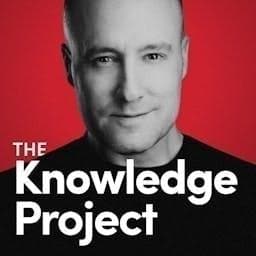How do you make legumes great again? This is not a political episode. It’s about something far more urgent: giving legumes the role they truly deserve in our food system. Together with Andres Jara, co-founder of Favamole, we explore what it really takes to build a regenerative food brand in the middle of today’s industrial food landscape.
What if a simple, delicious sauce could change crop rotations, farmer income, and your weekly lunch? With Andres we explore how a chef-turned-butcher-turned-farmer built Favamole: a fresh, clean-label legume spread that tastes great, pays growers fairly, and can scale without losing its soul.
How do you play the game while sharing shelf space with giant food companies, big retail, massive processors, and catering empires? And more importantly: how do you scale fast, influence as many hectares as possible, and not lose your regenerative soul along the way? We dive into regenerative business models, flavour as a lever for change, regenerative finance, scale, money, and impact, all while walking on the stunning, sunny, and very cold fields of Jeroen and Mellany Klompe.
We dive into the origin story—why a guacamole “alternative” wasn’t enough—and how redefining “mole” as its own category unlocked flavor, pricing, and brand freedom.
More about this episode.
==========================
In Investing in Regenerative Agriculture and Food podcast show we talk to the pioneers in the regenerative food and agriculture space to learn more on how to put our money to work to regenerate soil, people, local communities and ecosystems while making an appropriate and fair return. Hosted by Koen van Seijen.
==========================
👩🏻💻 YOUR OUR WEBSITE
📚 JOIN OUR VIDEO COURSE
💪🏻 SUPPORT OUR WORK
- Join Gumroad
- Share it
- Give a 5-star rating
- Buy us a coffee… or a meal!
==========================
🎙 LISTEN TO OUR PODCAST AND SUBSCRIBE TO OUR CHANNEL OR WATCH IT ON 📽️ our YouTube channel
==========================
FOLLOW US!
🔗 Linkedin
📸 Instagram
==========================
The above references an opinion and is for information and educational purposes only. It is not intended to be investment advice. Seek a duly li
Thoughts? Ideas? Questions? Send us a message!
Use KOEN10 for 10% off
RFSI Europe 2026
Find out more about our Generation-Re investment syndicate:
https://gen-re.land/
Thank you to our Field Builders Circle for supporting us. Learn more here
Support the show
Feedback, ideas, suggestions?
- Twitter @KoenvanSeijen
- Get in touch www.investinginregenerativeagriculture.com
Join our newsletter on www.eepurl.com/cxU33P!
Support the show
Thanks for listening and sharing!




































